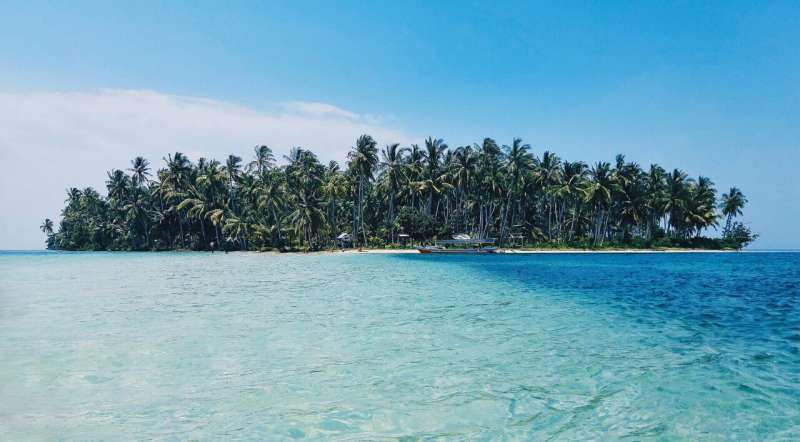This article has been reviewed according to Science X's editorial process and policies. Editors have highlighted the following attributes while ensuring the content's credibility:
fact-checked
trusted source
proofread
Evaluating the coastal costs of climate change

A review in the International Journal of Environment and Pollution has looked at research into the impact of climate change on the coastal environments of small islands. The study covers the literature from 1985 to 2021, and offers new insights into the deleterious effects of human activities on small island coasts.
Lorenzo Carlos Quesada-Ruiz of the University of Seville and Carolina Peña-Alonso of the Universidad de Las Palmas de Gran Canaria, Spain, examined more than 500 papers, which focused broadly on North Atlantic and North Pacific islands and highlighted the effects of various human activities on ecosystem services.
Human actions, including climate change, environmental policy, and tourism, have been identified as important factors that are detrimentally affecting delicate ecosystems. Factors such as increasing populations, technological advancements, and an increase in tourist activities have put increased pressure on small island coastal regions in many different ways. This pressure has disrupted ecosystem balances and led to increased vulnerability to natural disasters and climate extremes.
In addition, the review shows that of major concern are habitat loss, biodiversity decline, shoreline alterations, and landscape degradation. Activities like maritime trade, fishing, agriculture, urbanization, and infrastructure development have exacerbated the problems and pose ongoing threats to both ecosystems and local populations.
Moreover, the looming threat of climate change, with its projections of sea level rise and more frequent extreme storm events, will further compound the vulnerabilities, particularly for islands that have dense coastal populations.
In their review, Quesada-Ruiz and Peña-Alonso emphasize the importance of understanding the complex interactions between human activities and coastal ecosystems with a view to developing effective mitigation strategies to manage the worst effects.
For some areas, marine litter, extractive activities, and the lack of management of protected areas, remain underexplored in the research literature. The team points out that there are also methodological gaps, including limited integration of Integrated Coastal Zone Management (ICZM) and sparse utilization of data-driven models. This, their review suggests, highlights the need for more comprehensive approaches to coastal environmental research.
More information: Lorenzo Carlos Quesada Ruiz et al, Studies of environmental coastal impacts in small islands: a review, International Journal of Environment and Pollution (2024). DOI: 10.1504/IJEP.2023.137972
Provided by Inderscience





















